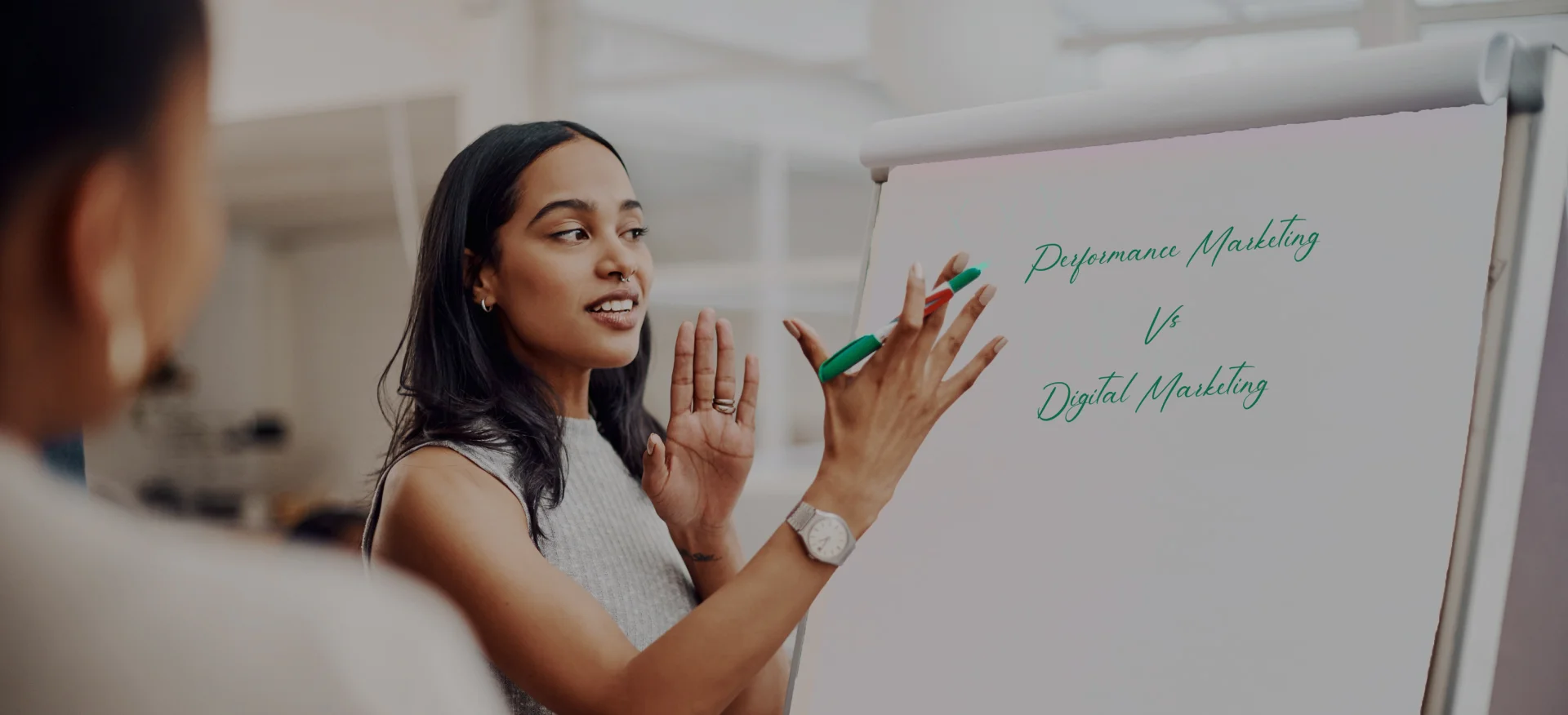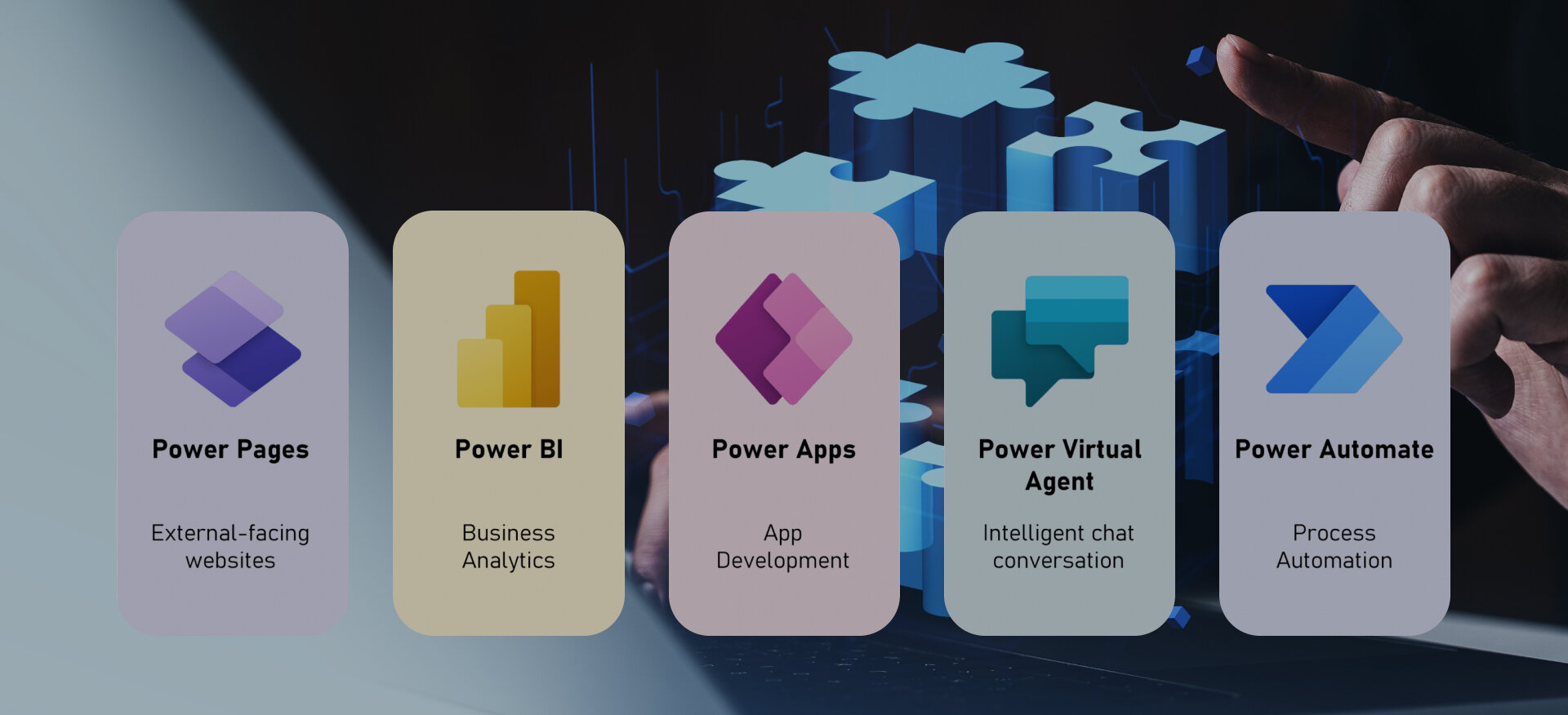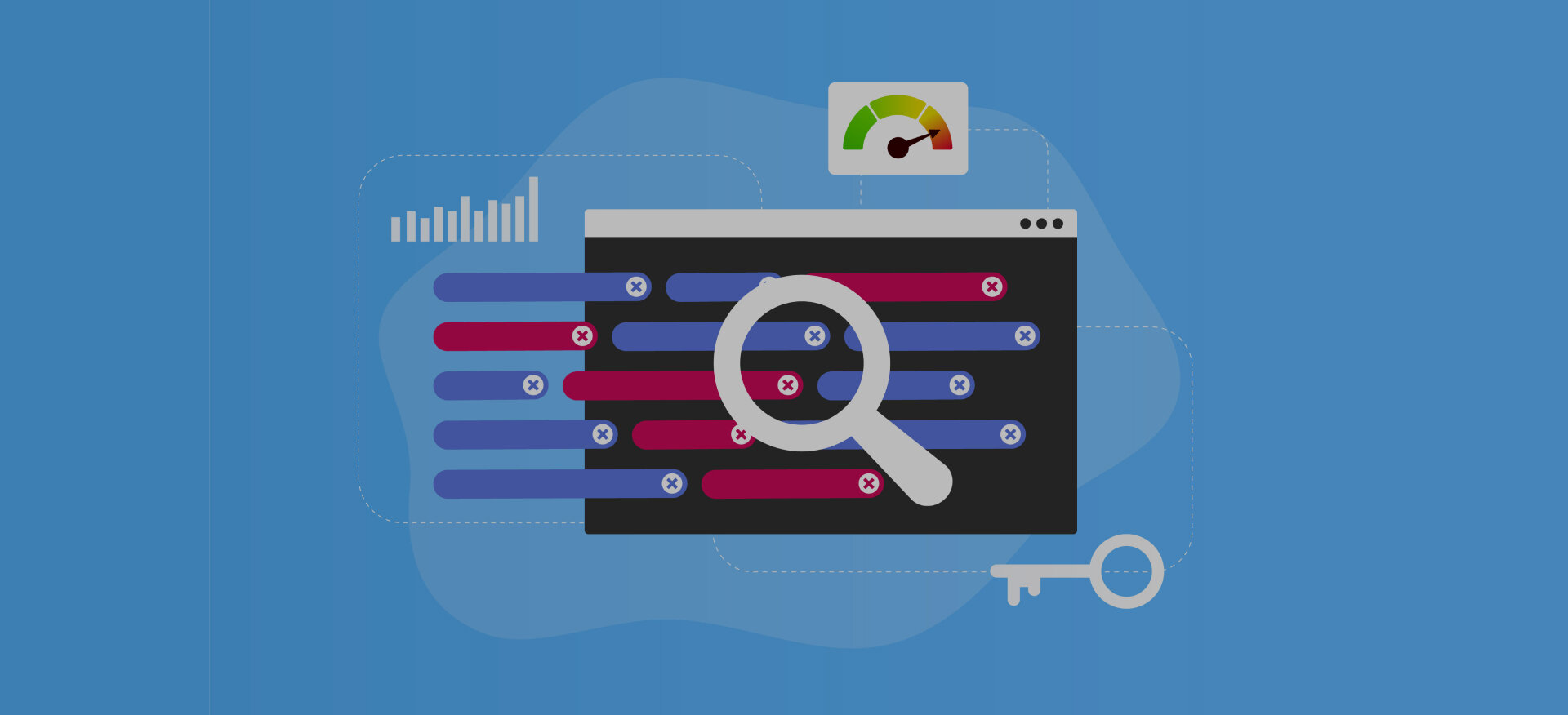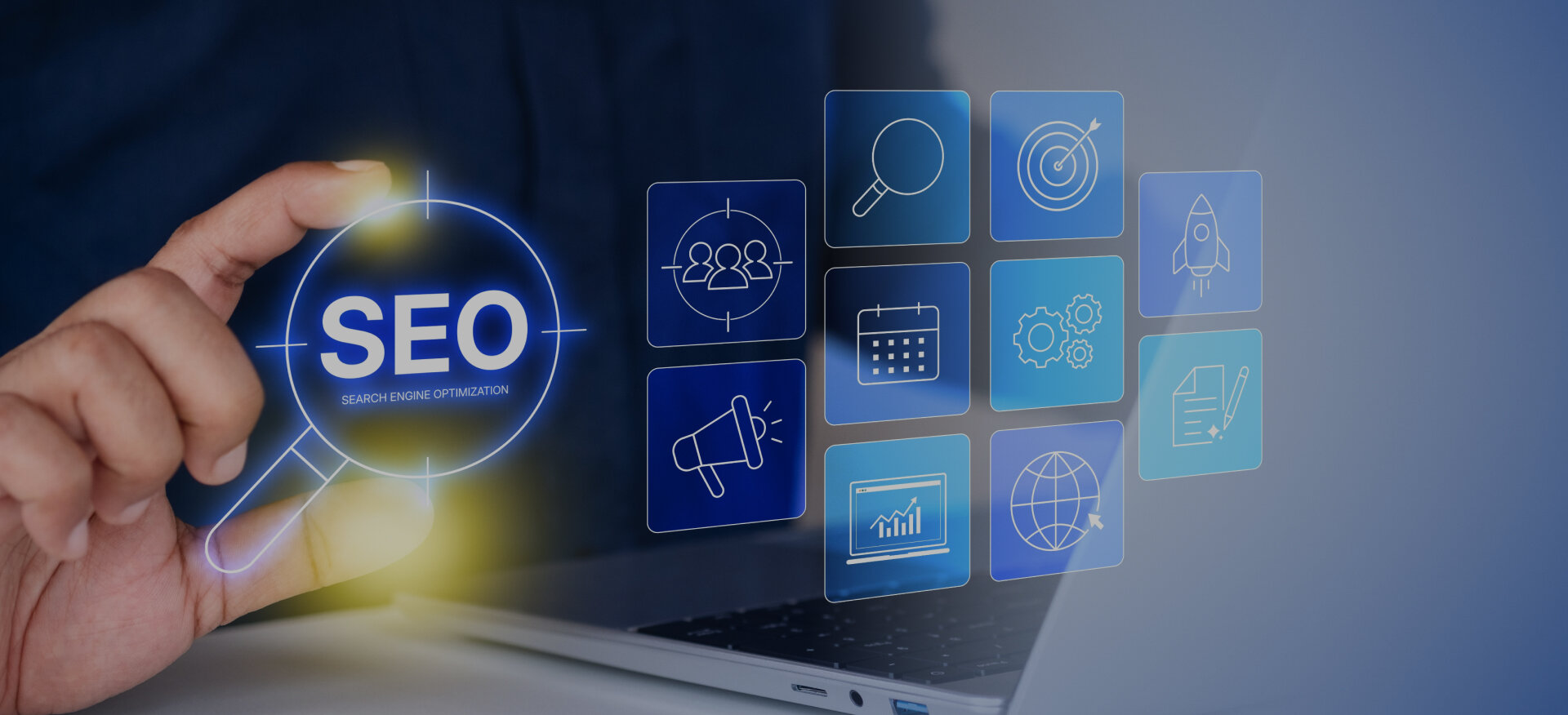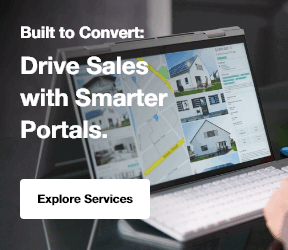In today’s hypercompetitive digital world, one of the most common questions business leaders ask is: “Should we focus more on performance marketing or digital marketing?”
It’s a debate that matters because both strategies play very different roles in growth.
Performance marketing focuses on measurable actions and short-term ROI, while digital marketing emphasizes brand visibility, authority, and trust over time.
Neither is inherently better; the real question is how you use them, separately or together, to fuel sustainable success.
Why This Debate Matters?
A 2025 HubSpot report revealed that 62% of marketers now prioritize performance-driven strategies tied to metrics like ROI, cost-per-acquisition (CPA), and customer acquisition cost.
At the same time, businesses can’t afford to ignore brand-building. Without awareness and trust, performance campaigns struggle to scale effectively.
That’s why modern companies need a blend: performance campaigns for immediate wins, supported by digital marketing to ensure long-term visibility and credibility.
This guide will help you understand the differences, show how to integrate both approaches, and give you a step-by-step framework to evaluate and optimize them together.
Understanding the Difference: Performance Marketing vs Digital Marketing
Digital marketing builds long-term visibility and trust, while performance marketing focuses on driving immediate, measurable results.
Knowing how they differ helps businesses decide when to use each or how to combine both for maximum impact.
Digital Marketing: Building Awareness and Longevity
Digital marketing is the broad category of online efforts aimed at growing brand presence, engaging audiences, and establishing authority.
It includes search engine optimization (SEO services), blogging, social media, email, and video marketing.
Think of it as the long game. Digital marketing won’t always deliver instant sales, but it builds the foundation for recognition and trust.
For example, a blog post may not generate revenue right away, but it helps your brand show up in search results, attracts qualified visitors, and nurtures them until they’re ready to buy.
Explore Our Digital Marketing Services!
Performance Marketing: Results You Can Measure
Performance marketing, by contrast, is all about accountability and immediate outcomes.
Instead of paying for placement or visibility, you only pay when a specific action occurs, such as a click, lead, or purchase.
Tactics like pay-per-click advertising, paid social media campaigns, affiliate partnerships, and retargeting ads fall under this umbrella.
This makes performance marketing ideal for businesses that need to see a quick return on their investment, whether launching a new product, scaling an offer, or running time-sensitive promotions.
Explore Our Performance Marketing Services!
Core Differences Explained in Depth
While both strategies share the goal of helping your business grow, their approach differs significantly.
Digital marketing is primarily focused on long-term visibility and credibility. Its goal is to create a strong, recognizable identity that builds trust with your audience over time.
You’ll often invest in assets like blogs, SEO campaigns, or videos without expecting immediate conversions.
The payment model reflects this, you typically pay for services, tools, creative Services, or creative production upfront, regardless of whether they generate short-term sales.
Performance marketing, on the other hand, is designed for immediate, measurable outcomes. Instead of paying for visibility, you pay for specific actions such as clicks, leads, or sales.
Its success is judged strictly by results, which makes it particularly attractive for startups and ecommerce businesses with limited budgets.
The channels and tools also differ. Digital marketing relies heavily on organic methods like SEO, blog content, and email nurturing, whereas performance marketing leverages platforms like Google Ads, Facebook Ads, affiliate networks, and programmatic display.
Finally, the way success is measured varies. Digital marketing looks at brand-related metrics such as impressions, engagement, organic traffic, and time on site, indicators of growing trust and awareness.
Performance marketing focuses on conversion-driven KPIs like return on ad spend (ROAS), cost per acquisition (CPA), and customer lifetime value (CLV). In short, digital marketing is about building your story; performance marketing is about driving trackable action.
Read Now: Remarketing vs Retargeting
When Should You Use Each Strategy?
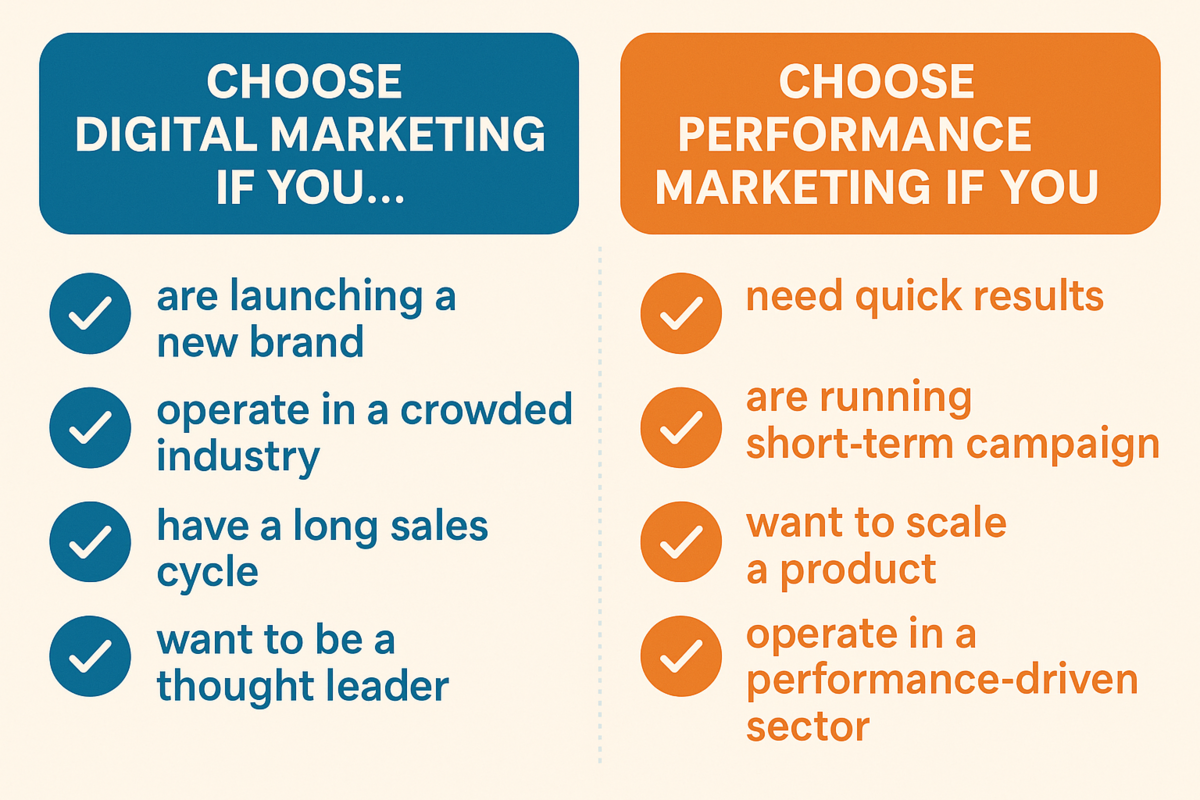
Choosing between digital and performance marketing depends on your business goals, timeline, and budget.
While one builds brand equity over time and the other delivers quick, measurable outcomes, the right choice often comes down to where you are in your growth journey.
Choose Digital Marketing If You…
- Are launching a new brand and need to build awareness
- Operate in a crowded industry like real estate or food and beverage
- Have a long sales cycle that requires customer education
- Want to position your company as a trusted thought leader
Choose Performance Marketing If You…
- Need quick, measurable results such as leads or sales
- Are running a short-term, budget-sensitive campaign
- Want to scale a proven product or funnel
- Operate in performance-driven sectors like ecommerce, travel, and tourism
Combining Both Approaches for Scalable Growth
The smartest approach isn’t choosing one over the other, it’s combining both.
Start with digital marketing to establish authority, visibility, and trust. Then, layer performance campaigns on top to convert that attention into measurable actions.
Over time, your digital presence reduces acquisition costs because audiences are already familiar with your brand, while performance campaigns accelerate revenue by driving conversions.
Case Study: Combining Both Strategies Successfully
A mid-sized SaaS company offers a great example of balance. When launching a new product, they:
- Built authority through digital marketing: They published educational blogs, optimized for high-intent keywords, and shared thought leadership on LinkedIn.
- Drove measurable results through performance campaigns: They ran LinkedIn lead-generation ads targeting decision-makers and retargeted website visitors with free trial offers.
Within six months, the company increased organic traffic by 65% while reducing cost-per-lead by 28%. This blend gave them both long-term credibility and immediate pipeline growth.
Actionable Steps to Integrate Both Strategies Across the Customer Journey
To get the best results, digital and performance marketing should work hand in hand at every stage of the customer journey.
By aligning the right tactics with awareness, consideration, decision, and retention phases, you can build trust while driving measurable conversions.
Consider advertisement examples like Facebook or Google Ads for the consideration stage, while Google keyword ranking and search optimization tactics help guide your brand's presence.
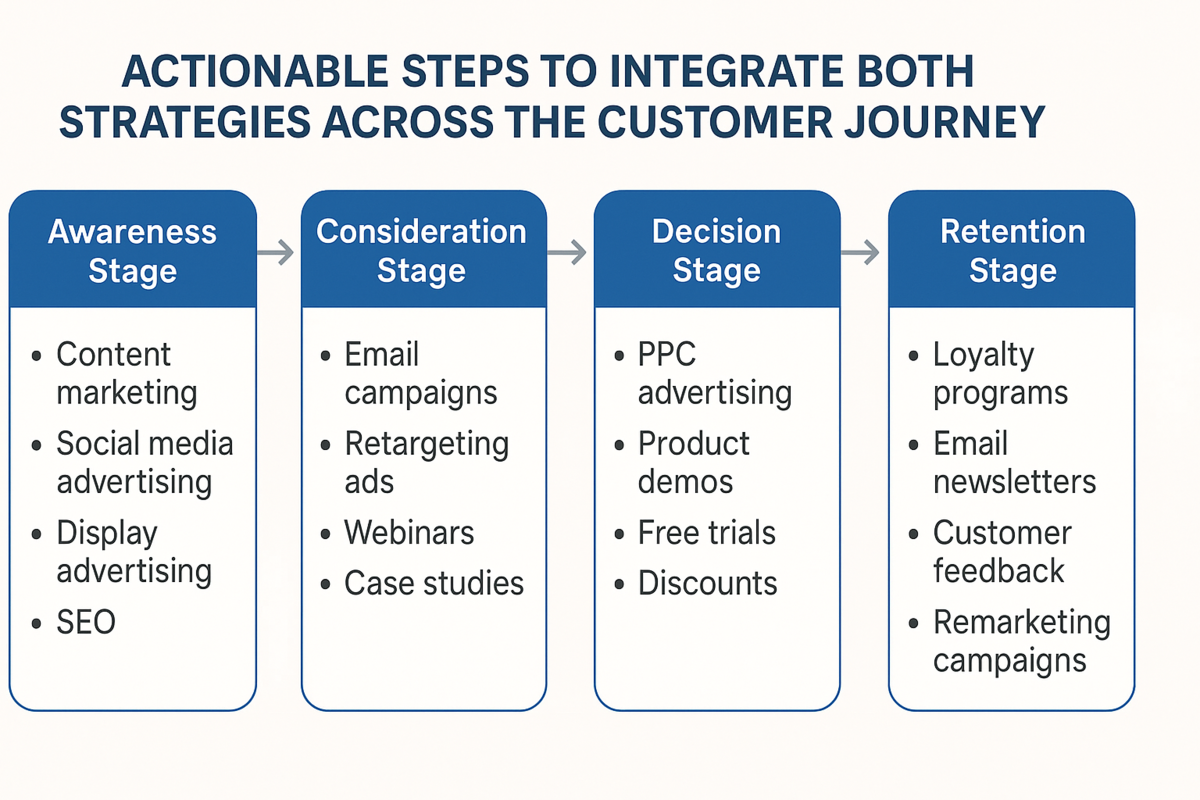
1. Awareness Stage
- Use SEO, blog posts, and video content to attract attention.
- Boost reach with display or social ads for broader visibility.
2. Consideration Stage
- Provide case studies, webinars, and eBooks to educate prospects.
- Use retargeting ads to re-engage users who visited your site.
3. Decision Stage
- Run PPC or social ads with strong CTAs to capture conversions.
- Offer limited-time promotions through affiliate or influencer campaigns.
4. Retention Stage
- Build loyalty with email campaigns, rewards programs, and personalized offers.
- Use remarketing ads to bring inactive customers back into the funnel.
How to Measure the Success of Both Strategies Together?
Measuring success requires looking at both brand-focused and performance-focused KPIs in tandem.
- Brand-level metrics: Organic traffic, brand mentions, engagement lift.
- Performance-level metrics: CPA, ROAS, click-through rate, conversion volume. How to search a word on a website effectively can help track specific keywords to evaluate performance, as well as boost best marketing tactics to ensure the most effective campaigns are being used.
- Blended metrics: Customer lifetime value (CLV), cost per incremental customer, marketing efficiency ratio (MER).
Using integrated tools like Google Analytics 4, HubSpot, or your CRM ensures you can connect long-term brand growth with short-term campaign results, giving you a holistic view of ROI.
Real-World Examples of Each Strategy in Action
- Ecommerce Brand: Runs Google Shopping Ads and Instagram retargeting (performance) while building organic rankings with product-focused SEO (digital).
- B2B Software Company: Publishes whitepapers and webinars to educate leads (digital) while running LinkedIn Ads to capture demo requests (performance).
- Automotive Business: Produces branded video content to grow awareness (digital) while launching pay-per-click campaigns for test drive bookings (performance).
6 Tips for Crafting a Balanced Strategy
- Start with your business goal: Do you need brand equity or immediate leads?
- Build a digital foundation first, then scale with performance campaigns.
- Integrate performance platforms with CRM systems for better tracking.
- Review data weekly and shift budgets accordingly.
- Use different measurement lenses, impressions build awareness, conversions drive sales.
- Align teams under one framework so branding and performance efforts reinforce each other.
FAQs
What is performance marketing?
It’s a digital strategy where you only pay when a specific action occurs, such as a click, lead, or sale.
How does performance marketing differ from digital marketing?
Digital marketing builds awareness and authority, while performance marketing drives immediate, measurable conversions.
What are examples of performance marketing campaigns?
PPC ads, social conversion ads, affiliate programs, influencer campaigns with tracked links, and retargeting ads.
Is performance marketing suitable for ecommerce?
Yes, it’s one of the most effective ways to scale quickly through campaigns like Google Shopping and retargeting.
What’s the difference between growth marketing and performance marketing?
Growth marketing takes a full-funnel, long-term approach (acquisition + retention), while performance marketing focuses narrowly on paid tactics for immediate results.
Conclusion
The debate between performance marketing and digital marketing isn’t about competition, it’s about complementarity.
Approaching both as interconnected strategies, using digital marketing to build brand trust and visibility while performance marketing delivers measurable ROI and tactical wins, ensures long-term growth and success.
Top search engines like Google, DuckDuckGo, and Bing offer different ways to approach both tactics, but the focus should be on how you blend these strategies to optimize for both short-term wins and long-term visibility.
Centric approaches both as interconnected strategies, using digital marketing to build brand trust and visibility, while performance marketing delivers measurable ROI and tactical wins.
- Digital marketing gives you visibility, trust, and brand equity.
- Performance marketing ensures measurable ROI and short-term wins.
When combined, they create a powerful growth engine that builds credibility while driving conversions.
So, instead of asking “Which one should we use?”, the real question is: “How will we balance both to drive immediate ROI and long-term growth?”
